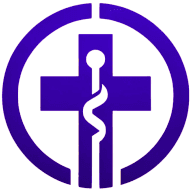This interview is with Mia Kazanjian, Physician.
Mia Kazanjian, Physician
Could you introduce yourself and share your background in the health and wellness field?
My name is Mia Kazanjian. I am a radiologist specializing in breast and body imaging. I trained at Stanford and practice in Connecticut. I primarily read mammograms, US, MRI, and perform the breast biopsies and localizations for surgery. My goal is to detect tiny breast cancers when they are best treated.
What inspired you to pursue a career in health and wellness, and how has your journey evolved to where you are today?
I grew up with a lot of doctors in my family. There is a great photo of me in a white coat at the age of 3 with a doctor's briefcase, stethoscope, and laryngoscope. I also grew up surrounded by art, having gone to high school across from the Met and taking AP Art History live in the galleries. I brought my interests in biology and art history together in becoming a radiologist.
What inspired you to pursue a career in health and wellness, and how has your journey evolved to where you are today?
I grew up with a lot of doctors in my family. There is a great photo of me in a white coat at the age of 3 with a doctor's briefcase, stethoscope, and laryngoscope. I also grew up surrounded by art, having gone to high school across from the Met and taking AP Art History live in the galleries. I brought my interests in biology and art history together in becoming a radiologist.
In your experience, what's the most significant change you've witnessed in the healthcare industry over the past decade?
The technology has evolved considerably over the past decade. All the imaging machines, including mammograms, ultrasound, CT, and MRI, continue to improve with further research and development to become more precise and robust. There is also more innovation with devices available for biopsies. Perhaps the most significant is the implementation of artificial-intelligence algorithms, which in radiology are poised to help increase cancer detection and efficiency.
Can you share a challenging patient case you've encountered and how it shaped your approach to healthcare?
I recently helped diagnose and treat a 24-year-old patient with an aggressive breast cancer. It was challenging because she is so young and had difficult social circumstances. Her career was unsettled, her family was displaced, and she was scared. It helped shape my approach because I realized that in addition to providing medical expertise, as a young woman, I could be a "familiar face" to her and someone she felt comfortable speaking with and getting advice from. It was a privilege to be in this position to help her.
What's one unconventional wellness practice you've found to be surprisingly effective in your work?
I keep my desk tidy and with minimalist decor. I find having a pristine environment helps make me more efficient and keeps me on a more structured checklist for the day. I also take some time for myself to go outdoors, take a walk, go shopping, even if brief. This frees my mind and gives me good perspective.
How do you balance staying updated with cutting-edge medical research and maintaining a personal connection with your patients?
I read regularly, attend lectures, and talk to colleagues. I always take time to listen to my patients so they know I care about their lives and concerns.
In your opinion, what's the most overlooked aspect of preventive healthcare that people should pay more attention to?
Regular screenings are overlooked. Many people go to the doctor only when they feel sick, and COVID-19 really accentuated that. Well visits are incredibly important.
Looking ahead, what emerging trend in health and wellness excites you the most, and how do you think it will impact patient care?
I think we should look to use artificial-intelligence software to enhance precision and efficiency. I think we should use technology to help us work better, and this will have good downstream effects on patients. At the same time, artificial intelligence may be a challenge because of the time and challenges of implementation and other unforeseen consequences. We need to educate ourselves and partner with AI companies to learn how to best implement products for optimal use.
Thanks for sharing your knowledge and expertise. Is there anything else you'd like to add?
I advocate going back to the basics and doing one's best to live a healthy life—don't smoke, limit alcohol, sleep well, eat vegetables and whole grains, exercise. There are so many wellness trends to keep track of, and some are great, but always go back to the tried-and-true.


